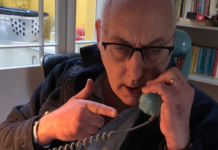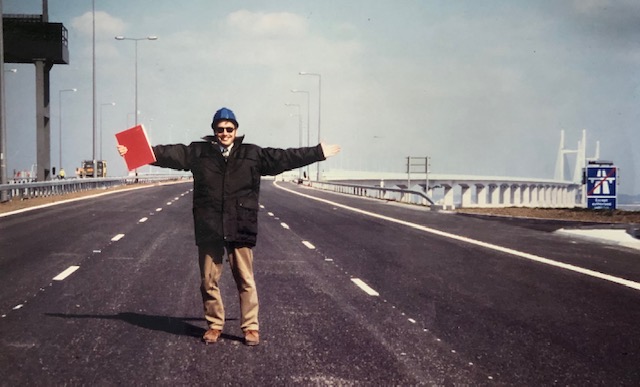- Best of enemies part one - 3rd July 2025
- Disabling protests again - 2nd July 2025
- Democratic deficit - 2nd July 2025

Here our Editor Phil Parry looks at the vital importance of full media freedom, not least in Wales, with the kind of investigative journalism he undertakes needed more than ever to keep those in power on their toes, and it combats threats all over the globe, while dumbed-down ‘journalism’ is the order of the day.
Earlier he described how he was assisted in breaking into the South Wales Echo office car when he was a cub reporter, recalled his early career as a journalist, the importance of experience in the job, and making clear that the‘calls’ to emergency services as well as court cases are central to any media operation.
He has also explored how poorly paid most journalism is when trainee reporters had to live in squalid flats, the vital role of expenses, and about one of his most important stories on the now-scrapped 53 year-old BBC Wales TV Current Affairs series, Week In Week Out (WIWO), which won an award even after it was axed, long after his career really took off.

Phil has explained too how crucial it is actually to speak to people, the virtue of speed as well as accuracy, why knowledge of ‘history’ is vital, how certain material was removed from TV Current Affairs programmes when secret cameras had to be used, and some of those he has interviewed.
He has disclosed as well why investigative journalism is needed now more than ever although others have different opinions, how the current coronavirus (Covid-19) lockdown is playing havoc with media schedules, and the importance of the hugely lower average age of some political leaders compared with when he started reporting.

For me it is absolutely crucial to allow a free media, and that dumbed-down ‘journalism’ does NOT keep those with influence on the straight and narrow!
True democracies cannot function without unrestricted, inquiring, investigative journalism, and after a career of almost 38 years I know this more than most!
The concept is, though, under threat as never before in countries all over the world, while serious journalists on an independent and inquiring national or public broadcaster (as in the case of the UK, the BBC), are increasingly becoming a rare breed.
It is clear, that network BBC (which has a long and proud history of undertaking important investigations) has had its confidence shaken by recent events, and is being attacked from all sides.
 But in BBC Cymru Wales (BBC CW) it’s even worse.
But in BBC Cymru Wales (BBC CW) it’s even worse.
The television Current Affairs programme Week In, Week Out (WIWO) (which I presented for 10 years) was closed after 53 years, and the only real Current Affairs series on BBC Radio Wales (RW), Eye on Wales has also just been axed.
So much for the broadcaster saying recently: “Eye On Wales gets to the big issues behind the headlines, spots stories just as they reach boiling point, and broadcasts voices you rarely hear”.

‘Celebrity’ ‘journalism’, and low-quality, dumbed-down, ‘reports’ seem to prevail, which are light years away from the work I do (where I work in a free media environment).
This is all set against a worrying backdrop.
For example, after Slovenia seceded from Yugoslavia in 1991, it gave Radio Television of Slovenia (RTV-SLO) a mandate to report independently, unlike the state propaganda that passed for news under communism. But the Government there is now refusing to pay RTV-SLO’s budget, and wants to pass a new media law that will make it easier to control.

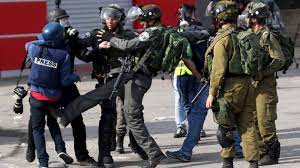
In the Netherlands the situation seems just as bad. Reporters on the national public news broadcaster, the NOS, have been physically attacked at protests and while reporting on Covid-19 measures. In October the NOS removed its logo from its satellite vans after they were repeatedly harassed in traffic.
In Latvia, the chief risk is the legal and financing structure. The country’s new public-media law fails to include a set-aside tax, like the television licence fee that funds the BBC (which could now be cut after the Martin Bashir affair), and that leaves it vulnerable to political pressure, while it is not clear that the supervisory board will be protected from political appointments.
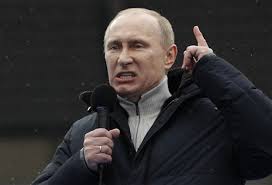
The prime example, of course, is Russia where RT (Russia Today) is accused of being a mouthpiece for Vladimir Putin. By the mid-2000s Russian news shows’ agendas were being set at government-led meetings.
When Viktor Orban won power in Hungary in 2010 he adapted Mr Putin’s blueprint, transforming the state media agency MTVA into a propaganda organ. The group was restructured into a shell company in a fashion that exempts it from the law governing public media, and during the European Parliament elections in 2019, editors at MTVA were recorded instructing reporters to favour Mr Orban’s Fidesz party.

Poland’s Law and Justice (PLS) party followed Mr Orban’s example when it won power in 2015, and quickly turned TVP, the public television network, into a bullhorn for the party. The network championed campaigns against gay rights and demonised the opposition mayor of Gdansk. After he was assassinated by an extremist in 2019, a court told TVP to pay damages, but it has not complied.
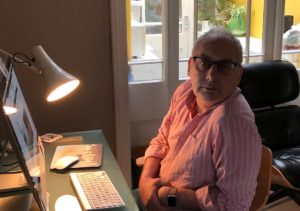
The awful abuse I have endured online is as nothing compared with the suffering of others worldwide.
In Belarus for instance the situation is also appalling. At least 16 journalists there are behind bars, and riot police are singling out reporters for arrests and beatings at protests as the media is intimidated.
On May 23 the embattled dictator Alexander Lukashenko, forced a Ryanair passenger plane to make an unscheduled stop in his capital in order to arrest the editor of an internet channel, NEXTA, that has been reporting on his crackdown.

Roman Protasevich, aged 26, was taken off the plane, which was flying from Athens to Vilnius, the Lithuanian capital. Citing what it said was ‘evidence’ that there were explosives on board, the authorities forced the aircraft to land in Minsk as it passed through Belarusian airspace on its way to neighbouring Lithuania, sending a MiG fighter plane to escort the Ryanair jet down. The state news agency later reported that no explosives had been found, and it seems certain that the incident was invented purely as a way of arresting the journalist.

The worrying news came after Marina Zolotova, the editor of Tut.by, an independent news website in the counrry, said: “Blue press jackets and press badges have become targets. When journalists go to cover a protest they cannot be sure that they will come home. This is a real war by the authorities against independent journalism and their own people.” It is clear that Mr Lukashenko is waging a war against journalists who have dared to report on his regime’s brutal crackdown against peaceful protesters.


At least eight protesters have been killed and hundreds more have alleged torture and rape, in police custody.
Among the most high-profile of those in prison is Yekaterina Bakhvalova, who was arrested on November 15 as she filmed riot police firing stun grenades into a crowd demonstrating against the death in police custody of a fellow protesters.
Around the world it appears to be becoming worse for media freedom and investigative journalism – while dumbed-down ‘news’ is seemingly wanted by authorities everywhere.
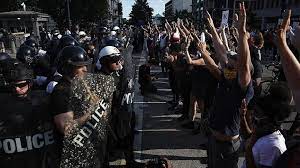
Dozens of reporters covering the anti-racism protests after the killing of the unarmed black man George Floyd that rocked the US, were apparently targeted by security forces using tear gas, rubber bullets and pepper spray. In many cases, the reporters said they were attacked despite showing clear press credentials.
Such assaults “are an unacceptable attempt to intimidate (reporters)“, said the Committee to Protect Journalists, a New York-based lobbying group. Attacks on journalists carried out by protesters have also been reported. The arrest of a CNN news crew live on air in Minneapolis, first drew global attention to how law enforcement authorities in the city were treating reporters covering the protests.
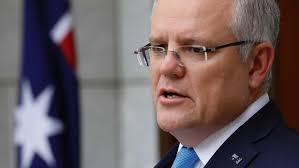
The Australian Prime Minister Scott Morrison asked his embassy in Washington to look into the use of force by police against an Australian news crew, as officers dispersed protesters there the previous day. It came after dozens of attacks on journalists and media crews across America over a single weekend were reported on social media.
In total the US Press Freedom Tracker, a non-profit project, says it is examining more than 100 “press freedom violations” at protests. About 90 cases involve attacks.

In Russia a special website is devoted to the numbers that have been killed for simply doing their jobs. Sometimes the persecution has official backing. Mr Putin recently signed a law that will allow Russia to declare journalists and bloggers as “foreign agents” in a move that critics say will allow the Kremlin to target government critics.
Under the vaguely worded law, Russians and foreigners who work with the media or distribute their content and receive money from abroad would be declared foreign agents, potentially exposing journalists, their sources, or even those who share material on social networks to foreign agent status.

Even in the (relatively) stable UK there is cause for alarm.
The Chief Reporter for the Mail, the local newspaper at Barrow-in-Furness in Cumbria, Amy Fenton, was forced to flee her home after receiving a torrent of insults and threats when she reported a local court case.
Police said there was a ‘credible risk to her life and that of her child’.
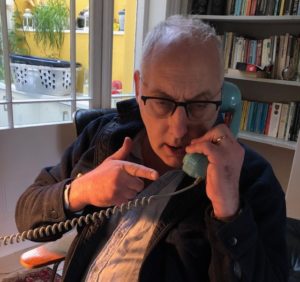
In the past I have been called (wrongly), a “bastard”, a “liar”, a “misogynist”, a “little git”, and (accurately), a “troublemaker”, a “nuisance”, “irritating”, as well as “annoying” but this pales into insignificance with what is happening elsewhere around the globe.
Investigating journalists like me need to have the freedom to make inquiries.
Otherwise who knows what those in power will get up to…

Tomorrow – how the creation of a bilingual Welsh digital company for the disabled puts centre stage revelations about its founder being investigated by the police, publicising social media ‘jokes’ on a murdering gunman, making abusive remarks concerning senior politicians, and trying to gag The Eye, yet has been allowed to become the ‘driving force’ for a new ‘national’ newspaper in Wales.
Phil’s memories of his astonishing decades long award-winning career in journalism (when reporting only meant receiving insults) as he was gripped by the rare neurological disabling condition Hereditary Spastic Paraplegia (HSP), have been released in a major book ‘A GOOD STORY’. Order the book now!







